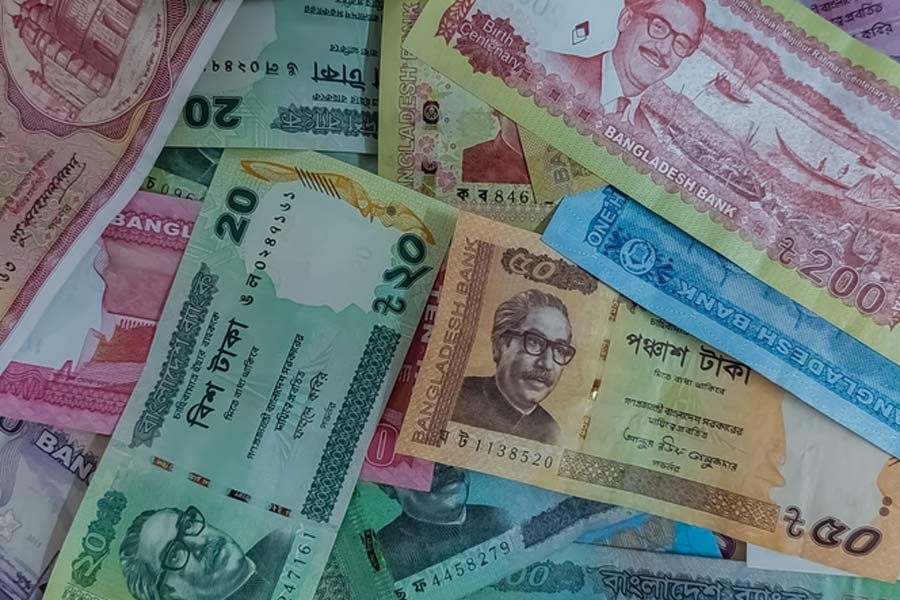Businesses in Bangladesh are facing a liquidity crunch as the central bank has capped the withdrawal of cash from banks at Tk 2 lakh amidst uncertainty in the country following the fall of the Sheikh Hasina-led government, a media report said on Monday.
The Bangladesh Bank set a cash withdrawal limit of Tk 2 lakh (Rs 1.42 lakh approximately) per account on Saturday, increasing it from the Tk 1 lakh announced earlier.
The central bank decided this due to security concerns as police are yet to return to work fully, following the clashes between police and students during the widespread protests against Hasina's Awami League-led government over a controversial quota system in jobs.
Interim Finance and Planning Adviser Salehuddin Ahmed on Sunday also said that the limit on cash withdrawals was required given the current situation.
Businesses, especially those mainly dealing with cash transactions, said they would be in a tough situation if the cash crisis lingers and restrictions remain next week, The Daily Star newspaper reported.
Ahmed, a former governor of Bangladesh Bank has said that the top priority of Bangladesh's interim government is to bring the economy back on track and restore the people's trust in the banks, Talking to reporters on Saturday for the first time after assuming office, Ahmed said the government's priority is to restore the trust of common people in the banks while resuming the operations of the central bank.
Business owners said their operations have halted since the second half of July when the widespread protests erupted.
Abu Bakar Siddique, an oil wholesaler in one of the largest kitchen markets in Dhaka, Karwan Bazar, said his bank would not allow more than Tk 1 lakh to be withdrawn.
"This is a big problem. As a result, the normal pace of business is being disrupted," the report quoted him as saying.
He said most business transactions are being conducted through bank-to-bank transfers or real-time gross settlements.
Taslim Shahriar, deputy general manager of a major commodity importer and processor, said not all businesspeople accept cheques.
"We have to pay in cash too, but now, transactions are only taking place through bank-to-bank transfers and cheques. The sooner this problem is resolved, the better for us," Shahriar said.
A senior official of another major commodity importer and processor said, "As such, I am unable to pay the full salaries to those who are daily wage earners. I told the workers to wait this week as there is no way I can manage cash now." Asserting that daily wage earners are facing a very difficult situation, the official said, "It's inhumane for them. If this situation persists for long, it will be very difficult to conduct business." Riad Mahmud, managing director of National Polymer Group, said he believes the situation will hamper business if it persists, according to the report.
However, he said it will not substantially hinder activities if it lasts a short time.
Over 230 people were killed in Bangladesh in the incidents of violence that erupted across the country following the fall of the Hasina government last week, taking the death toll to 560 since the anti-quota protests first started in mid-July.
An interim government was formed after the fall of the Hasina-led government. Nobel laureate Prof Muhammad Yunus was sworn in as the head of an interim government last week following the ouster of Hasina.
He announced the portfolios of his 16-member council of advisors on Friday.
Except for the headline, this story has not been edited by The Telegraph Online staff and has been published from a syndicated feed.










